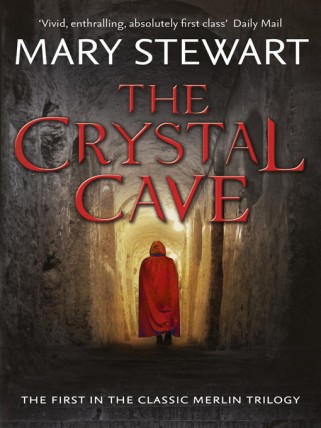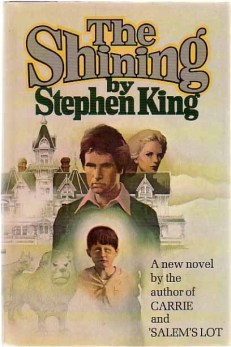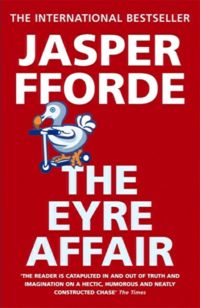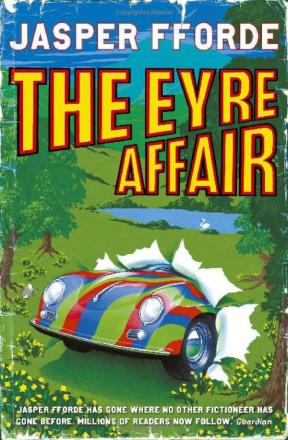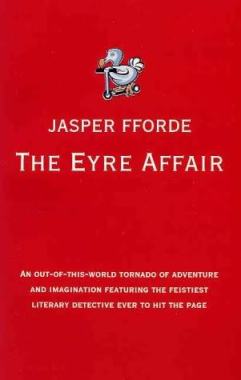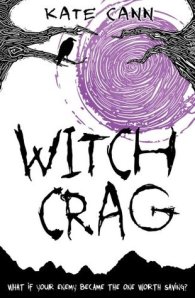Every now and then I like to challenge the laws of physics by testing the aerodynamic qualities of my reading materials. Today I decided to see if SJ Maas’ Throne Of Glass could fly.
Reader, I chucked it across the room, and it did not fly.
I don’t usually throw my books around. I’m a bookseller and a book lover; I hug books when they please me and lend books to friends to spread the joy and, guys, I like books. A lot. So the fact that this book caused me to throw it is no small thing. It might have been a blip, a momentary short circuit in my usually placid personality. It probably was. But for one moment I was so enraged and disappointed and annoyed by this book that I had to lash out. I’m not proud. I’m not a child. I should be above this sort of thing. But I threw it, because for a moment there I was five years old and tantruming because the book didn’t make me happy.
Before I go on, I’ll say this – a lot of people enjoyed this book and I don’t doubt there’s much in it to enjoy. Maas has a decent writing style that is readable and engaging, and she can write pacy scenes. She has a good imagination and is more than likely capable of writing some really cool stuff. I don’t want to diss her writing or abilities at all. Throne Of Glass just totally didn’t work for me and although I wasn’t a fan, people whose opinions I respect thought it was marvellous.

It’s got great cover art, I can say that for it
The summary:
Meet Celaena Sardothien.
Beautiful. Deadly. Destined for greatness.
In the dark, filthy salt mines of Endovier, an eighteen-year-old girl is serving a life sentence. She is a trained assassin, the best of her kind, but she made a fatal mistake: she got caught.
Young Captain Westfall offers her a deal: her freedom in return for one huge sacrifice. Celaena must represent the prince in a to-the-death tournament—fighting the most gifted thieves and assassins in the land. Live or die, Celaena will be free. Win or lose, she is about to discover her true destiny. But will her assassin’s heart be melted?
A couple of months back I read Maria V. Snyder’s Poison Study which had much the same set up and didn’t impress me much either: girl on death row gets her life back in exchange for using her skills to put her life on the line for political purposes. Romance is involved. Whereas Snyder’s heroine was trained to detect poisons, developing character as she went along, Celaena appears already trained and able.
To do everything.
I don’t mean just that she can do things – she can do everything. Brilliantly. She’s good at everything from archery to playing the piano to swordfighting to climbing to detecting poison to speaking other languages. AND she loves books. This means she’s a good person, doesn’t it? NO. At the age of eighteen she’s better than everyone around her – it’s one thing to have a precocious talent but the likelihood of being more than passable at all of these skills by the age of eighteen (also taking into account a year surviving in salt mines) stretches credulity to breaking point. Older, more experienced people are nothing compared to her literally incredible skills. Celaena is SO AWESOME YOU GUYS. And Celaena KNOWS IT.
I gave the overly heroic Kvothe in Patrick Rothfuss’ The Name Of The Wind a chance even though he and his skillset are far too good to be true. He was a nice guy, just about flawed enough to keep you interested, but someone you cheered on because you could feel his decency. Celaena is nothing like that. Jessie over at Ageless Pages diagnosed Special Snowflake Syndrome which is entirely apt; I’ll go a stage further and diagnose Serious Mary Sueism. I didn’t even click all the boxes that apply and she still got a score of 113. She’s snide, rude, arrogant and so far up herself she’s become a Moebius Sue.
She glared. “I hate women like that. They’re so desperate for the attention of men that they’d willingly betray and harm members of their own sex. And we claim men cannot think with their brains! At least men are direct about it.”
I lied earlier. I threw the book twice, once before I finished it. I picked it up to continue reading. Why did I throw it? That line. That horrible, bitchy, illogical line.
Kvothe worked also because he did things that proved he was kick-ass and cool. Locke Lamora in Scott Lynch’s books proves he’s a canny conman practically every other page. Arya Stark in Game Of Thrones also kicks ass in practically every chapter. Phedre no Delaunay is awesome all the damn time without resorting to violence. Katniss proves she’s got heart and skills with every day surviving the Hunger Games. Stephanie in Skulduggery Pleasant is forever being witty and brilliant. These guys all prove that they’re ace at what they do. More than ace – fantastic. Kvothe magics, Locke tricks, Arya scraps, Phedre outwits, Katniss survives to fight back, Stephanie saves the world.
Celaena, in comparison, does sod all. This book’s supposed to be the girl’s Game of Thrones (WHICH IS THE WORST THING EVER OH GOD I CAN’T EVEN BEGIN TO TACKLE THAT STATEMENT WITHOUT CAPSLOCKING) and the fantasy Hunger Games. It isn’t. The Hunger Games had great scenes full of nerves and clever writing that dealt with death, murder, heroism and self-sacrifice. There’s none of that going on here. Celaena never really proves that she’s the amazing assassin she thinks she is beyond two pretty good fight scenes and one dangling, daring rescue – some of the few scenes where I felt like the book was doing what it was supposed to do. We have all this guff about how handsome Dorian is (OH GOD NOT THE SAPPHIRE EYES AGAIN PLEASE GOD NO) or how beautiful Celaena is (GOLDEN HAIR RIGHT) or what they’re wearing (in quite some detail) but the same almost forensic level of narration isn’t given to the test the would-be assassins are put through. We don’t see enough of it, or the tons of people who die through it. It’s basically a backdrop, an afterthought, a MacGuffin. It’s the most diluted concept of violence and barely seems to matter to anyone – even those taking part.
AND there’s only enough background to act as wallpaper. The world is formed entirely around Celaena and the characters in her orbit and there’s no depth to it whatsoever. Almost everything we learn affects Celaena in some way. Nothing we’re told about the worldbuilding is about the world itself; it’s almost all about Celaena. I’m usually okay with thinner characters set against a strong world, or a lot of strong characters set against a thin backdrop, but not both weak characters and weak worldbuilding!
When it comes to those characters in Celaena’s orbit obviously both Dorian, spoilt but very noble attractive princeling and Chaol, determined but very noble attractive guard (he’s a captain and he seems to be about Celaena’s age and to be training her which is INSANE because these skill levels MAKE NO SENSE and she’s awesome and he’s better but how? What? I don’t get this) are completely head over heels for her because she’s beautiful and good at everything. I spent half the book hoping Chaol would cop off with Nehemia. There’s a scene where Dorian gives our darling star a present and she’s immediately the rudest child ever in response, making demands before she deigns to accept this gift, and then there’s the line that just broke off all sympathy for Celaena that I’d been clinging to for most of this book:
He was kind – unnaturally kind, for someone of his upbringing. He had a heart, she realized, and a conscience. He was different from the others.
Oh good god no. She’s thinking things like this even though her best friend is a princess. A PRINCESS. Who is on the side of good. It’s been proved several times over that, no, not all the aristocracy are heartless fiends. So obviously Celaena as an inverse snob is a tremendous judge of character. OH WAIT. She can do EVERYTHING. Why am I doubting her? MY BAD. Everyone adores her even though there’s not much about her to like.
Nehemia would have been a far more interesting main character – she’s layered, clever, with a sense of duty and courage that Celaena seems to be missing. Her people are under threat and she’s prepared to do so much to protect them. She and her people have a proper story to tell that would fit an epic fantasy framework better – check out NK Jemisin’s Hundred Thousand Kingdoms as an example of just that.
In fact I’m trying to resist the urge to list a load of books I’d rather recommend reading than this. As I said, lots of people have enjoyed it, and though this feels young like it’s written for the lower end of the YA market, I’d rather recommend some Maureen Johnson, Garth Nix, Diana Wynne Jones, Margaret Mahy or Sarah Rees Brennan. They have worldbuilding and emotional connections and main characters who combine attitude with flaws and skills and wit.
I really don’t think SJ Maas is a bad author. From some of what I’ve seen about this book online this started out as a darker, more mature story and I’d give my eye teeth to see what could have been made of that. If it had been aged up a few years, if Celaena had been given some texture, if that sodding love triangle hadn’t been shoehorned in. If the worldbuilding had had just a bit more work. If there’d been more action. If, if, if.
This book should have been exactly – EXACTLY! – the sort of thing that appeals to me. Strong heroine, kickass action, a new fantasy world, political upheaval, a good son of an evil king, mysterious histories, secret pasages, ghosts, drama, murder, snark. The fact that it fell so far short of the mark is sad. Maas is going to write more, write better, and create good work – but this isn’t it.
 This is the third part of the Hodderscape Review Project, wherein myself and a group of other bloggers will be reviewing one book per month from the wonderful personages over at Hodderscape!
This is the third part of the Hodderscape Review Project, wherein myself and a group of other bloggers will be reviewing one book per month from the wonderful personages over at Hodderscape! 